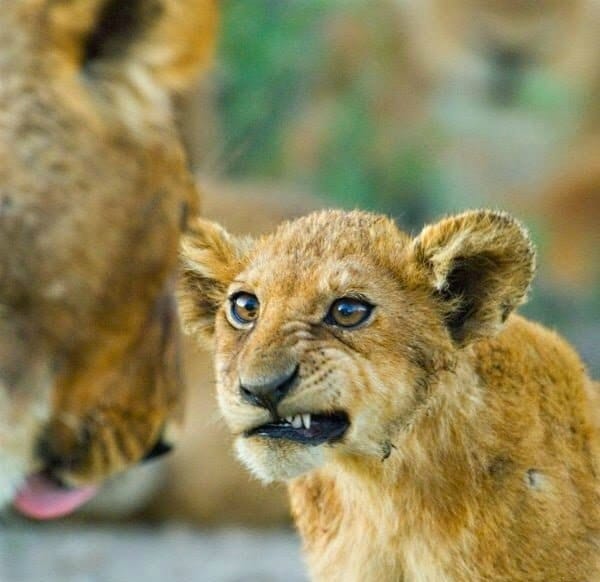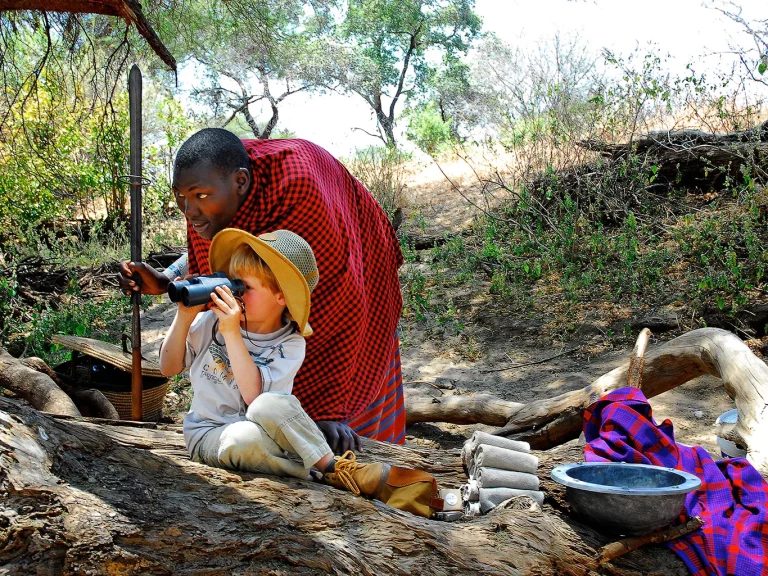To enjoy a stress-free trip to Mombasa Kenya It is vital to think about the safety and security. Here are some important points to remember:
1. General Security
Stay informed. Be aware of local news, as well as travel warnings from your country of residence.
Make an appointment with your embassy If necessary, register at your embassy in Kenya so they can provide assistance in an emergency.
2. Health precautions
Vaccines: Make sure you're up to date on your regular vaccinations. It is also possible to think about other vaccines for example, Hepatitis, Hepatitis, B Typhoid, Yellow Fever.
Mombasa's malaria has become endemic. Make use of antimalarial medications, insect repellents. Sleep under mosquito nets. Wear long sleeves.
Food safety and water: Avoid eating ice and drink bottled or boiling water. Eat well-cooked foods. Be wary of street food.
3. Personal Safety
Do not walk alone at night. Make sure you are in areas with lots of people. Avoid walking on beaches after dark or in secluded places.
Secure your valuables. Make use of hotel safety box for depositing valuables including passports and cash. Beware of displaying expensive items such as electronic gadgets and jewelry.
Choose Reliable Transport: Use certified taxis, ride hailing services or transport arranged by your Hotel. Avoid taxis that aren't clearly marked.
4. Local Laws and Customs
Be respectful of the local culture. Dress modestly, especially when visiting religious places. Pay attention to the customs and practices within your community.
Drug Laws: Kenya has strict drug laws, with severe penalties. Beware of illegal drugs.
Photography: Always get permission prior to taking photos of people, particularly in rural areas or of military and government buildings.
5. Beach and Water Safety
Safely swim. Pay attention to the local news regarding conditions, currents and swimming. Use designated swimming zones.
Marine Wildlife: Be aware of marine creatures such as jellyfish and sea urchins. If you walk along the beach, wear appropriate footwear.
6. Crime Prevention
Petty Crime: The theft of purses and bag snatching can occur, particularly in crowded areas. Be vigilant and keep all your belongings in a safe place.
Scams: Be cautious of strangers who offer assistance that seems generous or that seem too good to be real. Use only tour operators who are licensed.
Emergency Contacts - Know the local emergency number (999), including the Fire Department (999) and the Ambulance Service (999). The contact details of the Consulate or Embassy of your nation should be readily accessible.
7. Natural Hazards
Weather: Mombasa enjoys a tropical climate, with the potential for massive rainfall and flooding. This is particularly true in the rainy season, from April to June and from October to November. Be conscious of weather forecasts.
Sun protection Sun protection: Apply sunscreen wear hats, and keep well-hydrated to avoid heat exhaustion and sunburn.
8. Travel Insurance
Comprehensive Coverage: Ensure that your travel insurance covers medical emergencies, as well as theft, loss and disruptions to travel. Check the coverage of your policy for activities like water sports.
You can enjoy your vacation in Mombasa without worry by keeping these safety and security guidelines in mind. Take a look at the best mombasa safari tours for site advice including safari tour, tours & safaris, beach in mombasa, kenya tours, tour and travel company, kenya safari packages, tours safari africa, mombasa tour packages, trip tour companies, tours & safaris and more.

What Do I Need To Be Aware Of About The Conditions In Mombasa During My Vacation?
It is essential to know the weather patterns in Mombasa prior to packing and make the most of your vacation. Here are the main weather considerations.
1. Climate Overview
Mombasa has an arid climate with high temperatures throughout the year. Expect warm temperatures and the temperatures are usually between 24degC(75degF) and 32degC(90degF).
2. Seasons
The hot and humid season (November through April): During this period, temperatures are high and humidity is high. It is the most popular tourism season.
Long rains (April to June) The rainy season brings heavy rainfalls, and occasionally thunderstorms. Roads can become muddy and challenging to navigate. It is also the time of year when tourism slows down. tourism.
Cooler Season (June to October): Enjoy the cooler temperatures and less humidity in this time. The weather in general is pleasant, making it ideal for outdoor activities.
Short Rains: During this time it is a time of fewer and less severe rain showers. The rains are typically short and are followed by sunny days.
3. Tips for packing
Lightweight clothes: To stay dry and cool in the humid climate Pack lightweight, breathable clothes such as cotton or linen.
Rain Gear: Take an umbrella, raincoat and waterproof shoes if traveling in the rainy seasons.
Sun protection: Wearing a hat with big brim, wearing sunglasses and wearing light clothing to cover your skin all help protect you from sun.
Swimwear: Bring your swimming attire to the beach or the hotel pool.
4. Weather-specific activities
Beach Time: The most popular time to visit the beach is from June until October, when the weather is nice and the conditions for swimming are favorable.
The calm, clear water from November to March is ideal for snorkeling, diving and other water sports.
Wildlife Viewing. The cooler seasons (June-October) are also great for safaris or wildlife tours because temperatures are more bearable.
5. Health-related Considerations
Hydration: Keeping hydrated is vital in the humid, hot climate. Take plenty of fluids particularly when you're spending time outside.
Health-related illnesses that are related to heat: Be aware of the possibility of heat exhaustion and heatstroke. Wear loose clothes and frequent breaks in the shade. Avoid intense exercise during heat peak.
6. Adjustments for Travel
Be aware of delays if you plan to travel during the rainy season. There may be restrictions on travel and road closures regarding outdoor activities.
Rainstorms that cause delays to flights can sometimes cause flight delays. Prepare contingency planning and stay up-to-date with your travel plans.
7. Environmental Considerations
Natural hazards. Beware of the dangers associated with heavy rainfall. Always stay informed of weather conditions. Be sure to comply with any local safety rules.
Be aware of tides while making plans for beach activities. They can shift dramatically. Check local tide charts for safe swimming, beachcombing and other activities.
If you are aware of the significance of weather, you will be in a position to plan your trip, pack correctly, and ensure that your stay in Mombasa is secure. Check out the recommended mombasa watamu snorkeling for blog tips including tour mombasa, kenya safaris and tours, mombasa beach kenya, kenya safari tours, kenya safari tours, tour and travels, african safari kenya, mombasa safari, travel tours in kenya, trips to kenya africa and more.

What Environmental Obligations Do I Must Be Aware Of When On Vacation In Mombasa Kenya?
It is crucial to be environmentally responsible while traveling in Mombasa. This will ensure the beauty and biodiversity of the area. Here are some key environmental obligations to be aware of:
1. Sustainable Accommodation
Eco-friendly Hotels: Search for accommodation that is sustainable. Look for eco-labels such as Eco-Tourism Kenya.
Join hotel initiatives that help conserve water and energy. Recycle towels and sheets and switch off lights and air conditioning when they're not used.
2. Responsible Wildlife Viewing
Respect wildlife. Keep an appropriate distance from animals to ensure that you do not disrupt them. Be sure to follow the guidelines provided by your tour leader.
Avoid Feeding Wild Animals. Feeding wildlife can cause disruption to their normal behaviours and habits of eating.
Leave No Track. Do not litter in parks or wildlife reserves. Bring your trash home and properly dispose of it.
3. Plastic Reduction
Beware of single-use plastics. Use a reusable bottle for water as well as a shopping bag with tools.
Support local initiatives locally. Participate in local beach clean-ups or other organizations working to reduce plastic contamination.
4. Water Conservation
Use Water Wisely: Mombasa experiences water scarcity issues. Showers should be shorter and taps turned off when not in use.
Eco-Friendly Products - Use eco-friendly and biodegradable toiletries in order to lessen pollution of the water.
5. Energy Conservation
Reduce the consumption of energy by limiting use of air conditioning. Unplug any devices that are not in active use.
Make sure you choose hotels and tour operators that utilize renewable energy sources.
6. Sustainable Transportation
Public Transportation: If you can, reduce your carbon footprint using public transportation, like buses and matatus.
Take a look at short-distance walking, or renting bikes. Some areas have eco friendly Tuk-tuks.
7. Supporting local businesses
Buy Local: Purchase items such as souvenirs foods, crafts, and other items from local artisans and vendors to help support the local economy.
Fair Trade: Buy items that are certified fair trade so that local farmers get fair compensation.
8. Environmental Education
Learn and share. Learn more about local environmental issues as well as conservation efforts. Learn from your experience and share it with others to raise awareness.
Respect Local Cultures : Understand and respect local customs, practices and beliefs that are related to the conservation of the environment.
9. Marine Conservation
Responsible Snorkeling and Diving Do not touch or step directly onto coral reefs. Make sure you use sunscreen safe for reefs to protect marine life.
Don't throw garbage into the sea. Participate or support marine conservancy programs.
10. Ethical Souvenirs
Beware of Wildlife Products: Do not buy products made from endangered species like ivory or tortoiseshell.
Sustainable Materials: Select souvenirs that are made from recycled or sustainably produced materials.
11. Join to participate in Conservation Activities
Consider becoming a volunteer by participating in local conservation or tourism projects.
Help local NGO's. Donate to local NGOs and groups that work to protect the environmental.
12. Responsible Travel Policies
The size of the group: Traveling in small groups will minimize the impact on the environment.
Eco-Tours - Select tour operators who are committed to sustainability and eco-friendly practices.
Keep these environmental responsibilities in the forefront of your mind to ensure the protection of Mombasa's precious resources. Read the most popular kenya day tours for site advice including african safari tours, trips to kenya, africa tours and safaris, beach in mombasa, tour agents in kenya, kenya safaris and tours, holiday packages mombasa, kenya safari holiday, kenya holiday packages, tours and safaris and more.
